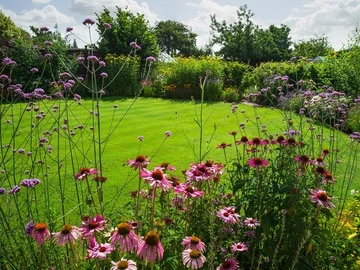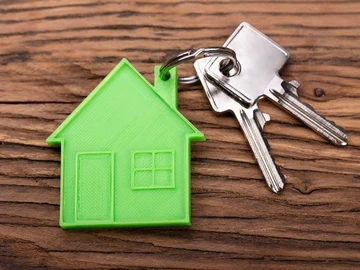Property crime refers to unlawful activities targeting real estate, land, or personal belongings. These crimes do not involve physical harm to the victim but focus on financial gain or destruction of property. In Zimbabwe, urban centers like Harare, Bulawayo, Mutare, Gweru, and Masvingo often experience property crime, impacting residential, commercial, and industrial properties.
This article dives into the types of property crimes, their effects on the real estate market, and practical strategies for protecting properties in Zimbabwe’s diverse regions.
Definition of Property Crime
Property crime encompasses offenses where tangible assets are stolen, vandalized, or destroyed without direct violence. For property owners and real estate investors, understanding these crimes is vital for safeguarding homes, rental properties, and commercial spaces.
Types of Property Crime
1. Burglary
Burglary involves unlawful entry into a property with the intent to commit theft or another crime.
- Common Targets in Zimbabwe: Upscale neighborhoods like Borrowdale, Highlands, and Glen Lorne in Harare and Hillside in Bulawayo often attract burglars due to high-value properties.
2. Theft
Theft includes stealing items such as construction materials, appliances, or personal belongings.
- Impact on Real Estate: Unoccupied properties in areas like Mutare Heights or Gweru Industrial Sites are particularly vulnerable.
3. Vandalism
This involves intentional property damage, such as graffiti, broken windows, or destruction of landscaping.
- Effect on Real Estate Value: Vandalism in high-traffic areas like Avondale Shopping Centre or CBD Bulawayo can deter potential buyers or tenants.
4. Arson
Arson refers to deliberately setting fire to a property, causing severe damage.
- High-Risk Zones: Properties in commercial districts like CBD Harare and Masvingo City Centre are often targeted.
5. Trespassing
Trespassing occurs when someone enters private property without permission. This is a common precursor to theft or vandalism.
How Property Crime Affects Real Estate in Zimbabwe
1. Decline in Property Values
Properties in crime-prone areas often see reduced demand and lower resale values, making it harder for owners to sell or rent.
- Example: A house in Dzivarasekwa, Harare, may sell for less compared to one in Borrowdale Brook, even if they are similarly built.
2. Higher Insurance Premiums
Frequent incidents of theft or vandalism in neighborhoods like Kumalo, Bulawayo, or Greendale, Harare, lead to increased property insurance costs.
3. Tenant Reluctance
Rental properties in high-crime areas struggle to attract or retain tenants, impacting landlords’ income.
- Example: Apartments in Mabelreign, Harare, may face vacancies if security concerns aren’t addressed.
4. Real Estate Investment Challenges
Investors may avoid areas with high property crime rates, slowing development in neighborhoods like Chitungwiza or Epworth.
How to Protect Property from Crime in Zimbabwe
1. Install Modern Security Systems
- Use CCTV cameras, alarm systems, and motion-detection lights.
- Properties in Gweru’s Southdowns or Mutare’s Murambi benefit greatly from advanced security measures.
2. Hire Professional Security Services
- Employ guards for high-value properties, especially in Emerald Hill and Mount Pleasant in Harare or Selbourne Park in Bulawayo.
3. Enhance Perimeter Security
- Use electric fencing, reinforced gates, and security walls.
- These measures are particularly effective in semi-urban areas like Norton and Marondera.
4. Community Watch Programs
- Participating in neighborhood watch initiatives in areas like Warren Park, Harare, or Nkulumane, Bulawayo, can significantly reduce property crime.
5. Property Insurance
- Ensure comprehensive coverage for risks like fire, theft, and vandalism, especially for properties in high-risk zones.
6. Conduct Background Checks
- Screen tenants for rental properties in Eastlea, Harare, or Ilanda, Bulawayo, to minimize risks associated with problematic occupants.
How Crime Impacts Different Areas in Zimbabwe
Harare
- High-Risk Areas: Chitungwiza, Epworth, and Kuwadzana.
- High-Value Targets: Borrowdale, Glen Lorne, and Highlands are targeted due to their luxury homes and valuable assets.
Bulawayo
- Vulnerable Areas: Cowdray Park and Pumula South see incidents of burglary and vandalism.
- Upscale Suburbs: Properties in Hillside, Kumalo, and Selbourne Park need advanced security measures.
Mutare
- Crime-Prone Areas: Areas near Sakubva are at higher risk for property crime.
- Safer Locations: Murambi and Palmerstone are better protected with gated communities.
Gweru
- Hotspots: Ascot and Mambo suburbs experience rising property crimes, particularly theft.
Masvingo
- Common Issues: Properties near the city center face burglary and vandalism risks.
Why Property Crime Awareness Is Essential
- Protects Real Estate Investments
Understanding crime patterns in areas like Victoria Falls or Beitbridge helps property buyers and investors make safer decisions. - Maintains Property Value
Improved security measures preserve property values, especially in Zimbabwe’s competitive real estate markets. - Boosts Rental Demand
Safer neighborhoods attract long-term tenants, ensuring steady rental income for landlords. - Encourages Real Estate Development
Lower crime rates encourage property developers to invest in residential and commercial projects across the country.
Final Thoughts
Property crime is a pressing issue for homeowners, landlords, and investors in Zimbabwe. By understanding its types, impacts, and prevention strategies, you can safeguard your real estate investments in cities like Harare, Bulawayo, Mutare, Gweru, and Masvingo.
Stay informed about property crime trends and real estate opportunities by visiting property.co.zw, Zimbabwe’s leading real estate marketplace. Together, we can create safer communities and strengthen the country’s property market.
 Continue with Facebook
Continue with Facebook
 Continue with Email
Continue with Email














